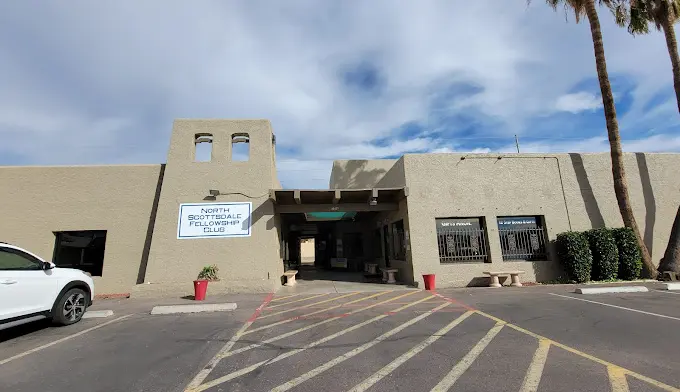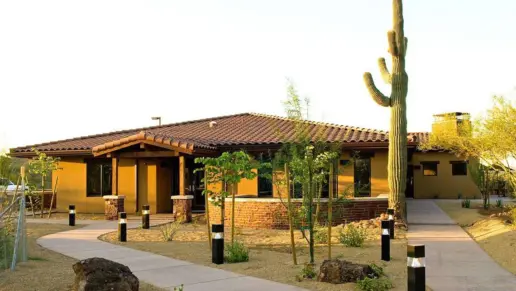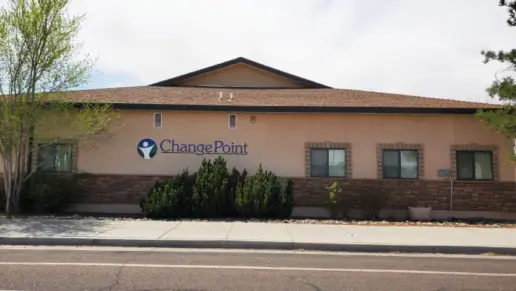If you are a newcomer female, please be wary of older male(s) with long-term sobriety trying to "help" you and be your "friend". When you need a ride or cash or a meal or a motel room, they will eagerly volunteer, and you'll believe that because they have a family or many f ...
About North Scottsdale Fellowship Club
North Scottsdale Fellowship Club in Scottsdale, Arizona, is a nonprofit organization that offers AA meetings for adult men and women struggling with alcohol addiction. AA meetings are held seven days a week, several times a day. In addition to AA meetings North Scottsdale Fellowship Club also offers several other 12 Step based meetings, including Families Anonymous, AlAnon, NARAnon, Adult Children of Alcoholics (ACOA) and Overeaters Anonymous. They also host several other events such as weekly Saturday night speakers and comedy nights.
AA operates under a set of principles called “Twelve and Twelve” which represents 12 steps and 12 traditions. These steps and traditions serve as a guide to help clients work through the overwhelming feelings that come with battling addiction. Although many of the steps mention a higher power AA is not affiliated with any religion, and people from all backgrounds are welcome.
The goal of AA meetings is to help participants achieve and maintain sobriety by providing a supportive and judgment free environment. In following AA’s 7th tradition which states that all AA groups should be self-sustaining, North Scottsdale Fellowship Club offers monthly memberships for $15 and yearly memberships for $160. However there is no cost to attend meetings.
North Scottsdale Fellowship Club has received positive feedback with several people noting that the club offers a welcoming and supportive atmosphere and is a great place to find community. Others credit North Scottsdale Fellowship club as being instrumental in their recovery journey.
Rehab Score
Gallery

Location
Other Forms of Payment
Self-pay involves paying for treatment out of your own pocket. You can use savings or credit, get a personal loan, or receive help from family and friends to fund your treatment. If you don't have insurance or your insurance plan doesn't cover a specific program, self-pay can help ensure you still get the care you need.
Addiction Treatments
Levels of Care
Treatments
The goal of treatment for alcoholism is abstinence. Those with poor social support, poor motivation, or psychiatric disorders tend to relapse within a few years of treatment. For these people, success is measured by longer periods of abstinence, reduced use of alcohol, better health, and improved social functioning. Recovery and Maintenance are usually based on 12 step programs and AA meetings.
Drug rehab in Arizona is the process of treating individuals who are dependent on a particular addictive drug. Because addiction is complex, this treatment typically includes a variety of interventions that address the many physical and emotional issues involved.
A combined mental health and substance abuse rehab has the staff and resources available to handle individuals with both mental health and substance abuse issues. It can be challenging to determine where a specific symptom stems from (a mental health issue or an issue related to substance abuse), so mental health and substance abuse professionals are helpful in detangling symptoms and keeping treatment on track.
Opioid rehabs specialize in supporting those recovering from opioid addiction. They treat those suffering from addiction to illegal opioids like heroin, as well as prescription drugs like oxycodone. These centers typically combine both physical as well as mental and emotional support to help stop addiction. Physical support often includes medical detox and subsequent medical support (including medication), and mental support includes in-depth therapy to address the underlying causes of addiction.
Programs


Clinical Services
Eating disorders include anorexia, bulimia, binge eating, and dysfunctional eating patterns. Many psychologists and other mental health professionals consider eating disorders to be food addictions, meaning food is being used in an addictive way (similar to drug or alcohol addiction). Certain substance abuse treatment programs will have treatment for eating disorders as one of the services offered. An eating disorder may also present as a co-occuring disorder or dual diagnosis alongside drug and alcohol addiction.
Research clearly demonstrates that recovery is far more successful and sustainable when loved ones like family members participate in rehab and substance abuse treatment. Genetic factors may be at play when it comes to drug and alcohol addiction, as well as mental health issues. Family dynamics often play a critical role in addiction triggers, and if properly educated, family members can be a strong source of support when it comes to rehabilitation.
Group therapy is any therapeutic work that happens in a group (not one-on-one). There are a number of different group therapy modalities, including support groups, experiential therapy, psycho-education, and more. Group therapy involves treatment as well as processing interaction between group members.
Amenities
-
Residential Setting
-
Private Setting
-
Private Rooms
Contact Information
10427 North Scottsdale Road
#200
Scottsdale, AZ 85253


